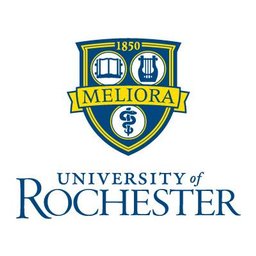Job Opportunities in Israel

October 2, 2024
University of Rochester
Research Assistant professor
University of Rochester: Office of the Provost: University of Rochester Medical Center: School of Medicine and Dentistry: Orthopaedics: Orthopaedics: Center for Musculoskeletal Research
Location
School of Medicine and Dentistry, Dept of Orthopaedics, Center for Musculoskeletal Research, URMC
Open Date
Oct 01, 2024
Salary Range or Pay Grade
$65000-$68000
Description
The Center for Musculoskeletal Research (CMSR: www.urmc.rochester.edu/musculoskeletal-research.aspx ) at the University of Rochester Medical Center (URMC: www.urmc.rochester.edu ) is currently inviting applications for a Research Assistant Professor faculty position as part of its mission to excel in musculoskeletal research and education focused on discovery and translation of innovations that improve human health. Applicants making use of genomic/epigenomic approaches, metabolomics, animal model systems and/or human specimens to address problems of translational relevance are strongly encouraged. The successful candidate will benefit from state-of-the-art infrastructure and core facilities, highly collaborative interactions with clinical faculty as well as a strong Institutional commitment to career development.
The successful candidate(s) will join a growing multidisciplinary musculoskeletal research community with ongoing emphases in musculoskeletal development and regenerative biology, bone biology and disease, bone cancer biology, fracture repair, osteoimmunology and infections, cartilage biology and arthritis, tendon repair and regenerative engineering, inflammatory arthritis, musculoskeletal biomechanics and mechanobiology, musculoskeletal stem cell biology, tissue engineering and targeted cell- and drug-delivery, population health, and artificial intelligence/machine learning. The CMSR is a national leader in musculoskeletal research at the University of Rochester, attracting more than $22M in musculoskeletal-directed funding annually. Since 2000, several key programmatic achievements have galvanized the cohesiveness, productivity and international reputation of the CMSR. Significant funds from extramural programmatic support and the success of individual faculty winning federal grants have placed this group among the top 5 NIH-funded orthopaedic research programs since its inception in 2000. By pursuing strategic recruitments aligned with its mission, the CMSR aims to grow the success of this program and continue making strides in basic understanding of musculoskeletal biology, translating discoveries into therapies for orthopaedic problems that critically impact the public health.
The successful candidate(s) will join a growing multidisciplinary musculoskeletal research community with ongoing emphases in musculoskeletal development and regenerative biology, bone biology and disease, bone cancer biology, fracture repair, osteoimmunology and infections, cartilage biology and arthritis, tendon repair and regenerative engineering, inflammatory arthritis, musculoskeletal biomechanics and mechanobiology, musculoskeletal stem cell biology, tissue engineering and targeted cell- and drug-delivery, population health, and artificial intelligence/machine learning. The CMSR is a national leader in musculoskeletal research at the University of Rochester, attracting more than $22M in musculoskeletal-directed funding annually. Since 2000, several key programmatic achievements have galvanized the cohesiveness, productivity and international reputation of the CMSR. Significant funds from extramural programmatic support and the success of individual faculty winning federal grants have placed this group among the top 5 NIH-funded orthopaedic research programs since its inception in 2000. By pursuing strategic recruitments aligned with its mission, the CMSR aims to grow the success of this program and continue making strides in basic understanding of musculoskeletal biology, translating discoveries into therapies for orthopaedic problems that critically impact the public health.
Qualifications
Candidates holding Ph D or MD/Ph D degrees with a demonstrated track-record of research accomplishment in an area relevant to musculoskeletal biology and genomics, and 3-5 years of post-doctoral experience are invited to apply, with particular emphasis in the areas of bone biology and metabolism.
Application Instructions
If you already have an Interfolio account, please sign in to apply to this position. If not, please create an Interfolio account. For questions/concerns pertaining to the position, email marianne_dalton@urmc.rochester.edu.
The referenced pay range represents the University’s good faith and reasonable estimate of the base range of compensation for this faculty position. Individual salaries will be determined within the job’s salary range and established based on (but not limited to) market data, experience and expertise of the individual, and with consideration to related position salaries. Alignment of clinical incentive-based compensation may also be applicable and will be discussed during the hiring process
The referenced pay range represents the University’s good faith and reasonable estimate of the base range of compensation for this faculty position. Individual salaries will be determined within the job’s salary range and established based on (but not limited to) market data, experience and expertise of the individual, and with consideration to related position salaries. Alignment of clinical incentive-based compensation may also be applicable and will be discussed during the hiring process
Application Process
This institution is using Interfolio's Faculty Search to conduct this search. Applicants to this position receive a free Dossier account and can send all application materials, including confidential letters of recommendation, free of charge.
Apply Now
We regret to inform you that this job opportunity is no longer available
Latest Job Opportunities






Similar Jobs




October 1, 2024
NVIDIA
Senior HPC and AI Networking Performance Research and Analysis Engineer
יקנעם עילית
View DetailsNew Jobs from This Company
